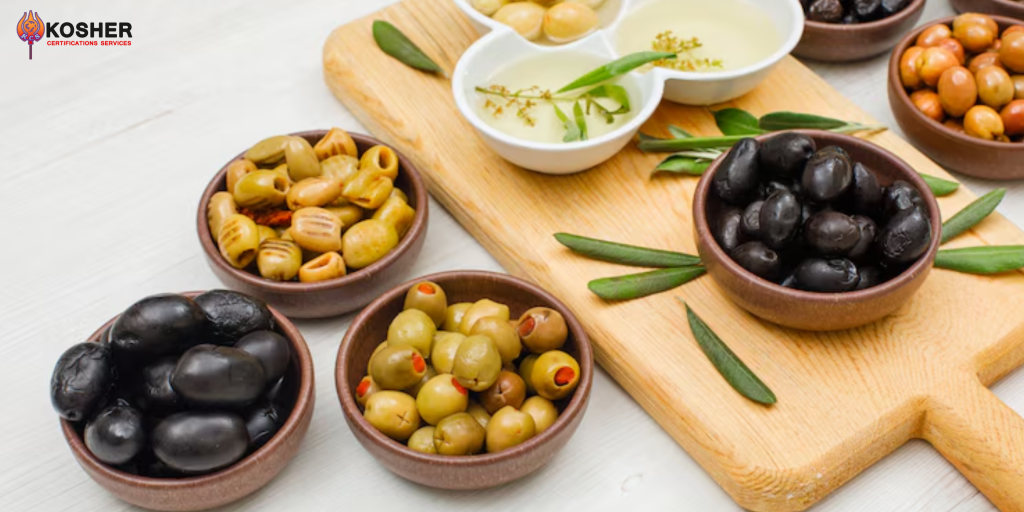In today’s food-conscious world Kosher Certification, consumers want to know more about what goes into their food and how it’s made. One label that often raises questions is kosher certification. You might see a small “U” in a circle, a “K” mark, or similar symbols on packaging, but what do they actually mean? In this blog, we break down kosher certification in simple terms — what it is, how it works, and why it’s important for both businesses and buyers.
What Is Kosher Certification?
The word “kosher” comes from Hebrew and means “fit” or “proper.” In food terms, it refers to items that meet Jewish dietary laws, known as kashrut. These rules dictate what types of food are allowed, how they must be processed, and even how they should be served.
Some of the core principles include:
-
Permitted animals only: For example, cows and chickens are allowed; pigs and shellfish are not.
-
No mixing meat and dairy: You can’t cook or eat them together under kosher rules.
-
Ritual slaughter: Meat must come from animals that are slaughtered in a specific way.
-
Clean utensils and surfaces: All kitchen tools and food equipment must meet kosher standards.
These guidelines are strict and detailed, which is why many food producers turn to kosher certification agencies for help.
What Is Kosher Certification?
Kosher Certification is an official process that verifies whether a product or facility follows kosher guidelines. If it does, the product receives a certification symbol — often seen as a small mark like OU, OK, Kof-K, or Star-K — that consumers can trust.
A kosher-certified product assures buyers that it:
-
Contains only approved ingredients
-
Was produced using kosher methods
-
Was made in a facility that meets strict kosher standards
These agencies act as third-party auditors, providing ongoing oversight to ensure products remain compliant over time.
The Certification Process: Step by Step
Getting certified isn’t something that happens overnight. It’s a structured and ongoing process:
-
Initial contact: A food business contacts a kosher agency to begin the process.
-
Review of ingredients: The agency checks every ingredient and additive to ensure they’re kosher.
-
Facility inspection: A kosher supervisor inspects the production facility and equipment.
-
Approval and labeling: If all requirements are met, the product earns kosher certification.
-
Regular monitoring: Periodic inspections continue to make sure the standards are upheld.
The goal is to maintain the integrity of kosher products, from production to packaging.
Who Needs Kosher Certification?
Kosher Certification isn’t only for businesses that cater to Jewish customers. In fact, many companies seek certification to:
-
Expand into new markets
-
Meet export requirements
-
Attract health-conscious consumers
-
Enhance their brand reputation
Buyers outside the Jewish community also choose kosher-certified products. Vegetarians often look for “pareve” items (neither meat nor dairy), while others appreciate the added oversight and cleanliness that comes with kosher standards.
Benefits for Businesses
If you run a food business, kosher certification can offer a major boost:
-
Market access: Reach Jewish communities and global markets that prefer or require kosher goods.
-
Higher quality standards: Improve food handling, hygiene, and consistency.
-
Customer trust: Build a loyal following with a transparent and certified label.
-
Retail opportunities: Many grocery chains and international distributors look for kosher-certified brands.
Simply put, Kosher Certification opens doors — both locally and internationally.
How to Recognize Kosher Symbols
When shopping, you’ll see various symbols on packaging. Here are a few common ones:
-
OU – From the Orthodox Union, one of the most recognized kosher certifications.
-
OK – A reliable certification often found on packaged goods.
-
KOF-K and STAR-K – Trusted by many manufacturers and retailers.
-
D (Dairy) – Indicates the presence of dairy.
-
Pareve – Means the product contains no meat or dairy and is neutral.
-
P (Passover) – Certified as kosher for Passover, following special rules.
Each agency has its own symbol, and understanding them can help you make informed choices.
Final Thoughts
Kosher certification isn’t just about religion — it’s about trust, quality, and integrity. For consumers, it provides confidence that food has been made responsibly and ethically. For businesses, it’s a valuable credential that can boost credibility and reach wider audiences.
Whether you’re a shopper looking for clean and transparent food options, or a food producer aiming to grow your brand, kosher certification is worth understanding — and, in many cases, pursuing.
